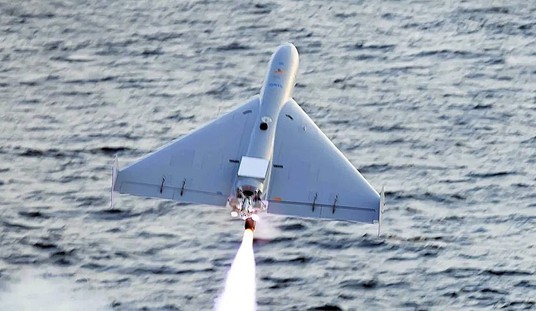The future is here, my friends and it looks a lot like the past. Specifically 1977.
We’ve covered some of the advances in nascent artificial intelligence here, along with the possibilities and dangers offered by self-driving cars. Granted, there have been some initial hiccups such as the odd accident here and there and the one guy who actually died. (Though to be fair, it was probably because he was watching a Harry Potter movie instead of keeping track of the road.) But overall, progress has been made. That pace seemed to accelerate this week when a commercial endeavor was accomplished using a self-driving truck. However, any time I’ve pondered visions of the future involving driverless vehicles, I don’t think I was picturing a robotic remake of Smokey and the Bandit. Yes… the first commercial trip of this sort was a beer run. (New York Times)
The futurists of Silicon Valley may not have seen this one coming: The first commercial delivery made by a self-driving truck was 2,000 cases of Budweiser beer.
On Tuesday, Otto, the Uber-owned self-driving vehicle operation, announced the completion of its first commercial delivery, having delivered its beer load from Fort Collins, Colo., to Colorado Springs, a roughly 120-mile trip on Interstate 25.
In recent years, Uber has predicted a future in which you can ride in a self-driving car that will take you where you want to go, no driver necessary. But the idea that commercial trucking could be done by robot is a relatively new idea — and a potentially controversial one, given the possibility that robots could one day replace human drivers.
“We think this technology is inching closer to commercial availability,” Lior Ron, co-founder of Otto, said in an interview.
They’re not providing details at the needed level, but I like to imagine that people heard this drifting from the cab as the truck went by:
Keep your foot hard on the pedal. Son, never mind them brakes.
Let it all hang out ’cause we got a run to make.
The boys are thirsty in Atlanta and there’s beer in Texarcana.
And we’ll bring it back no matter what it takes.
In the movie they were delivering Coors, not Budweiser, but the trip took place in Colorado (the home of Coors) so that’s close enough for me.
This trip brings up yet another AI question which I’ve been pondering lately. It arose from a recent Science Channel show devoted to artificial intelligence and it deals with morality in self driving vehicles. On this trip there was a trained driver in the cab (though not at the wheel) for the entire trip. He was ready to intervene if needed, but the truck completed the delivery without any glitches so he was along for the ride. So here’s the question…
If the truck is on a highway traveling at normal speeds and a situation arises where there’s suddenly a pedestrian or motorcyclist in harm’s way, what will the truck do? Is it programmed as per Asimov’s first law of robotics?
A robot may not injure a human being or, through inaction, allow a human being to come to harm.
So there was a driver in the cab of the truck. In the aforementioned scenario, what will the truck do? If there’s no human in the cab I assume that the truck will sacrifice itself to save a human on the highway, throwing itself over the guardrail. But is the program aware when there is a person in the cab? And if so, will it then decided to run down the stranded motorist rather than risk killing its passenger?
I suppose I’m mostly wondering if the developers have thought this through and taken such questions into consideration. Those are some pretty weighty decisions for the onboard AI to make, and it applies to the driverless Ubers which are already on the way. As for the rest of us, you have to wonder if you really want a computer making that call when your car breaks down on the highway and you’re trying to change a flat. I’m just not sure this is a job we want to turn over to a non-human intelligence.









Join the conversation as a VIP Member